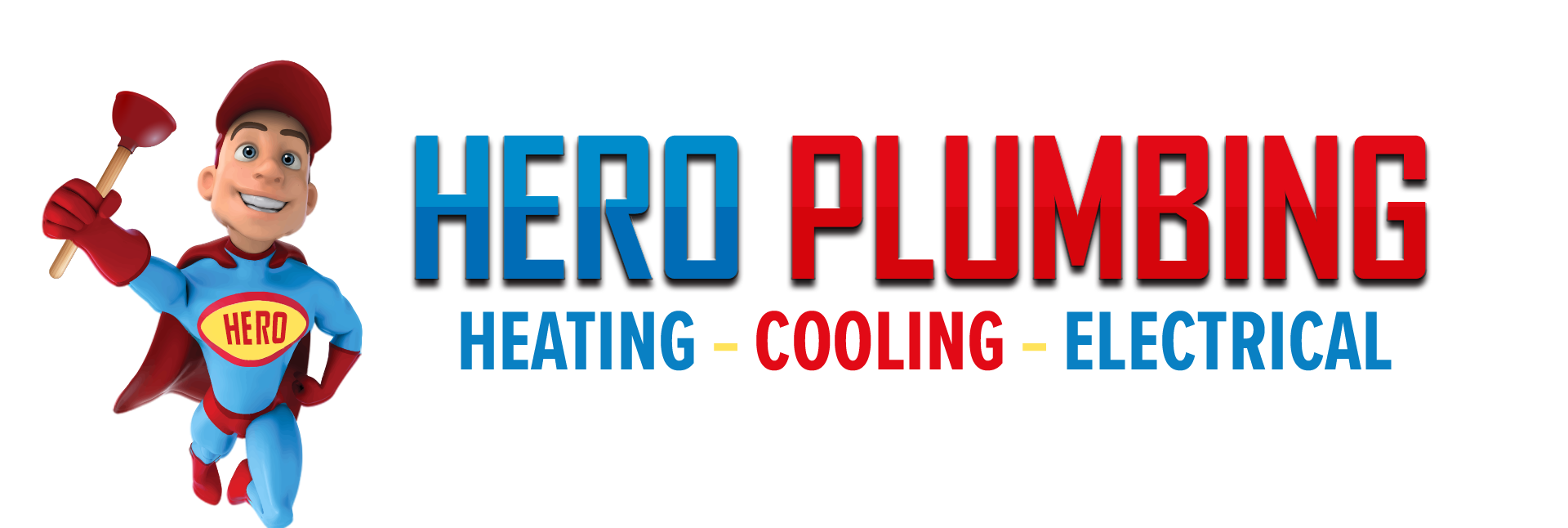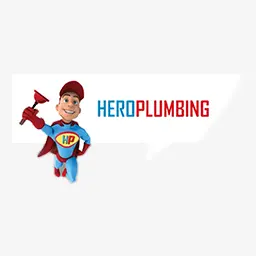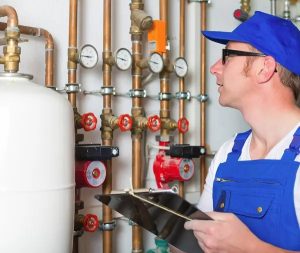Table Of Contents
- DIY Vs Professional Plumbing
- Reasons To Call A Professional Plumber
- DIY Plumbing Vs. Professional Plumbers
- Projects That May Need Professional Plumbers
- Plumbing Projects That You Can DIY
- Plumbing Projects That Are Dicey For DIY
- Illegal DIY Plumbing
- Legal DIY plumbing
- Qualities To Look For In Professional Plumbers
- Some Services Of Master Plumbers
DIY Vs Professional Plumbing
Getting helpful guides on DIY plumbing is so easy, especially with all the available resources. You can check out YouTube or visit the internet to find helpful guides to get your plumbing up and running. Still, some plumbing jobs go beyond the usual plumbing repair and installations. For these, you could rightly ask: “should I call a plumber or do it myself?”
Read on to know what times you should call a professional plumber. You will also find out the reasons to call a professional plumber and the pros and cons of DIY plumbing vs. professional plumbers. In addition, this post will consider specific plumbing projects that can be DIY, dicey, or considered illegal. Finally, you can know what to check for with professional plumbers and what their services may be.
Reasons To Call A Professional Plumber
Granted, you can quickly and cheaply complete simple DIY plumbing projects like changing a kitchen tap. However, there are emergency plumbing and other plumbing issues when it is better you call a professional plumber.
- Where the work is extensive and not fit for a novice.
- For unknown occurrences that require quick response to prevent further damage.
- For plumbing projects that require a license. A license is evidence of proper knowledge and experience in plumbing repair and installation work.
- To meet plumbing standards and regulations.
DIY Plumbing Vs. Professional Plumbers
The following are some benefits and drawbacks of DIY plumbing and using professional plumbers when it comes to plumbing repair and installation projects:
Pros of DIY Plumbing
- Cost saving: Undoubtedly, cost should not be the only basis for deciding between performing DIY plumbing projects or hiring a professional plumber. However, it can be a major reason if the bulk of the cost for the plumbing jobs is labour related. For instance, you may simply buy the tools and parts needed from local hardware stores.
- Learning opportunity: The best way of learning is by doing, right? Necessity can give you the motivation to learn some basic plumbing repair skills. You may do this by watching videos and applying what you learned.
- Self-reliance: Meanwhile, a lot can be said for the confidence you gain when you perform DIY plumbing repair and installation work. Ultimately, you become more self-reliant.
Cons of DIY Plumbing
- Inaccurate assessments: Since your knowledge and experience may be limited, you may not be able to correctly assess plumbing problems.
- Increased errors: Furthermore, the limited skill set available can potentially lead to making more mistakes.
- No license: Typically, the DIY plumber is not licensed or bonded.
- Less safe: Similarly, the DIY plumber may not be aware of associated safety hazards and potential threats.
Pros of Professional Plumbers
- Greater work guarantee: Generally, professional plumbers can guarantee their work. In the same vein, you may not be able to guarantee that your DIY plumbing repairs will last a long time.
- Identification of warning signs: In addition, professional plumbers can identify plumbing issues that can likely become major later on.
- Greater efficiency: Likewise, a professional plumber is more likely to perform plumbing repairs that do not recur again. Typically, they can identify the problem and solve it promptly. More so, they can generally work within your budget.
- Safety is ensured: Besides, professional plumbers can identify and reduce safety hazards quickly. For instance, they can help you identify moulds and polybutylene piping.
- Better qualified, licensed, and insured: Now, these are great reasons to call in a professional plumber for plumbing jobs. They have credentials like a professional plumber’s license, insurance and are likely bonded.
Cons of Professional Plumbers
- Their labour charges may be high.
- You may incur additional charges for parts and materials.
Projects That May Need Professional Plumbers
Exterior Plumbing
Plumbing fixtures outside the home may have plumbing issues. These can include both inbound and outbound pipes. Over time, these pipes may wear out due to debris, flooding, and large tree roots. You may even have frozen pipes. Clearly, these are concrete reasons to call a professional plumber. They can conduct proper pipe inspections to identify and fix the problem.
Interior Plumbing
Other times, you may need to do plumbing repair work within the walls of your building. It could even be in floors, ceilings, or a poorly functioning shower or sink. Indeed, you would need a competent plumber to identify the source of the problem and fix it. Besides, you may need another contractor to repair the wall.
Renovation
Similarly, you may want to call a professional plumber when you have major renovation projects. After all, such plumbing jobs could be labour intensive. An example is a bathroom remodelling project. You may even have plumbing jobs involving your kitchen sink or kitchen plumbing.
Of course, this may affect the overall kitchen design. You are likely to need expert plumbing advice and plumbing permits in the above cases. More so, such renovation projects may require proper knowledge of building codes.
Fixing Broken or Frozen Pipes
In the same vein, you may consider it time to call a professional plumber when you have broken or frozen pipes. Firstly, you need to know the cause of the break. Second, frozen pipes may need a proper thawing process to avoid fractures, breakage, or further water damage.
Plumbing Projects That You Can DIY
The following are some simple plumbing projects you may tackle relatively quickly:
Repair and Replacement of Toilet Parts
Several things could make your toilet stop functioning well. These may include simple wear and tear of components and faulty parts. They can even make your toilet not flush properly. Now, you may easily make such repairs by replacing faulty components. Other times, you may make some repairs on the seals, chains, shutoff valves, or fill valves.
Similarly, you may be able to fix a loose toilet or toilet seat yourself. Simply purchase the needed DIY kits from hardware stores and make the repairs. However, line leaks or water leaks may occur on the floor or within walls if you need to replace an entire toilet. Clearly, new toilet installation can be a reason to call a professional plumber.
Fixing Clogged Drains or Slow Draining Showers
Sometimes, you hear complaints like: “the water flowed slowly as I drained my bath.” A slow draining shower or bath can be pretty standard. Other times too, you may need to unclog a bathroom sink. You can clean up clogged drains by getting the required items from a local hardware store. Meanwhile, you can make recourse to other methods.
These include the use of baking soda as drain cleaners, a plunger, or a wire hanger. Perhaps, you are looking for preventive measures for clogged drains. You can set up effective filtration systems. For instance, you could buy a drain filter to trap hair and other debris. This way, you can prevent drain clogs and slow drainages in your bathroom sinks and shower.
Installation of New Taps
Likewise, you may not need a professional plumber to install a new faucet. First, turn off the water valves. This includes valves for both the hot and cold water. Thereafter, you can remove the old faucet and replace it. However, even after following a video guide, you may still need a professional plumber to fix issues that come up.
For example, there could be damage to valves and necessary repairs. Again, you may need to ensure the holes on counters or bathroom sinks align properly with the new faucet. This way, you would not have to drill additional holes.
Repairing a Leaky Faucet
On the other hand, performing repairs on a leaky faucet can be more technical. First, turn off the water valve. This way, you drain the plumbing systems of all its water. Then, cover the drain with a washcloth. Next, remove knobs or decorative handles.
This last action gives you room to unscrew the nuts holding the faucet handle to the stem. After that, you may check the condition of other parts. Now, remove the old washers and O-rings and replace their exact new duplicates.
Plumbing Projects That Are Dicey For DIY
Specific plumbing repair projects require some level of caution for DIY plumbers.
For instance, toilet replacements can have severe consequences for you if not correctly done. Remember, there are waste lines (or drain lines) and water supply lines to consider. After replacement, the toilet has to be appropriately aligned.
Similarly, you should exercise some caution when replacing old plumbing. Even garbage disposals need to be replaced carefully. Additionally, there may be polybutylene pipes. Also, the drain lines may not be properly sloped or aligned to code and regulations.
Illegal DIY Plumbing
Although you may be aware of national plumbing laws, you still need to check state laws and regulations regarding DIY plumbing. Otherwise, you may be legally and financially penalised for trying to fix your plumbing problem yourself. For instance, the Australian Plumbing Code authorises only licensed plumbers to complete plumbing or drainage works.
In other words, you need a licensed plumber to perform any work related to the installation and plumbing of drinking water systems. The same applies to the drainage of sewer lines. Consequently, you may need a licensed plumber if you want to handle water treatment systems. Similarly, roof plumbing and gas fitting work regarding, say, gas lines or gas leaks may need licensed plumbers.
Interestingly, even if you later get a licensed plumber to check your DIY work, they cannot back-track and certify your previous work. More importantly, your insurance company will not likely cover illegally carried out work.
As a result, you may consider it time to call in the experts for certain kinds of work. These include work with sewer systems, gas lines, water lines, and hot water/water heaters.
Legal DIY plumbing
Granted, you ought to first check federal laws and your local state laws for recent changes. However, here are some plumbing repairs and jobs you could do legally:
- Installing new toilet seats, jumper valves, tap washers, drop valve washers, showerheads, and floor grates.
- Connecting residential water filters and some aspects of irrigation systems.
- Washing machine hoses connecting to existing taps.
- Using natural methods to clear clogs from showers, baths, basins, gutters, stormwater drains, and downpipes.
Qualities To Look For In Professional Plumbers
If your state finds you to have hired an unlicensed plumber to do plumbing work, you may be fined a minimum of $32,000 under the Plumbing and Drainage Act 2018. More so, a licensed plumber is supposed to issue you a compliance certificate and have insurance cover the work.
Furthermore, you can use the following plumbing tips to ensure you hire professional plumbers:
- Check their licenses and qualifications.
- Look for genuine online reviews.
- Experience and ability to provide guarantees on workmanship matter.
- Feel free to ask questions about pricing options.
Some Services Of Master Plumbers
To fix your plumbing problems, you may ask yourself: “should I call a plumber or do it myself?” Also, you may have considered the reasons to call a professional plumber, like the pros and cons and plumbing projects that can be DIY, dicey, or considered illegal. Now, you may be interested in knowing what services you can get from master plumbers.
Master plumbers are well qualified to do commercial plumbing and bathroom plumbing. In particular, they can use powerful drain cleaning tools to clear out stubborn clogs. They may even have water softeners. Furthermore, they handle various aspects of kitchen plumbing and home plumbing heating issues. As such, if you want to get your water heater installed.
A professional plumber may advise you to go for tankless water heater because of the benefits of installing it. More so, they can help you install heat pumps. In terms of repairs, some of them can handle water heater repairs. For instance, if you complain of a lack of hot water, they may fix it.
Similarly, they perform various aspects of water lines repairs. So, feel free to invite them for plumbing work on lines such as water supplies, gas lines, and sewer line repairs. Finally, you may ask. What about sudden plumbing issues like burst pipes, slab leaks, or leaky faucets? Yes. A plumbing emergency is enough reason to call a master plumber.











